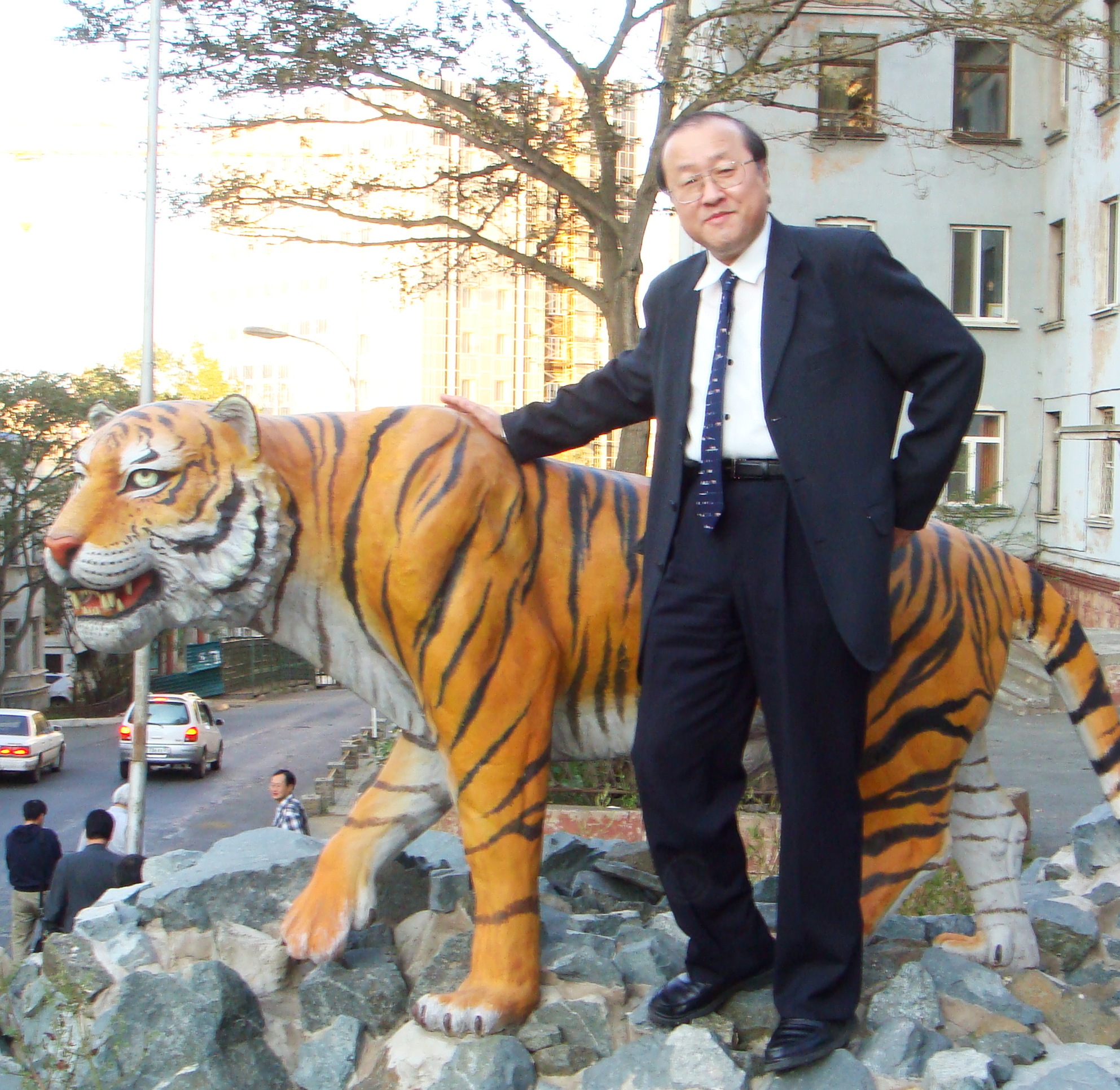|
Greetings from the Chairperson of the JCREES
|
Mitsuyoshi Numano
Professor of the University of Tokyo,President of the Japanese Association
for the Study of Russian Language and Literature
|
With an Amur Tiger in Vladivostok
 |
My warmest greetings to all my colleagues in Russian and Central/Eastern European studies!
Since I was elected to be the new chairperson of the JCREES in February 2013, I have been feeling excited at the great expectations of a new challenge.
Although the responsibility I have to bear is very heavy, I know at the same time that in my period in office, we will undertake a kind of journey,
filled with excitement and adventure, leading into the future of our discipline.
This period will be of particular importance to the JCREES, that is, for the whole body of Japanese Russian and Central/Eastern European studies.
First and foremost, our greatest task is doubtless to make the Ninth ICCEES World Congress a great success.
This unprecedented event is already close at hand―to be held in Makuhari, Chiba, in August 2015. As the first congress to be held outside Europe
in the history of the ICCEES, it will give, by making Japanese and Asian scholars’ presence vividly felt,
a great impetus to the worldwide academic community in the field of Russian and Central/Eastern European studies.
I hope this occasion will help all our colleagues to acquire a global viewpoint that goes beyond the European frame of reference.
Regrettably, the achievements of Japan’s Russian and Central/Eastern European studies are not yet well known outside Japan,
but we have already accumulated experience and knowledge in our field and are developing an extensive network of researchers in Asia,
inviting colleagues from China, Korea, Mongolia, India, and other Asian countries to join us. I sincerely hope that
the Makuhari Congress will be a great step forward into the future of our discipline and give all participants,
both from abroad and from Japan, great inspiration for the further development of their research.
Within the field of Russian and Central/Eastern European studies, there are, of course,
various ideological positions and diverse cultural backgrounds, and even within the Japanese academic community
it will not be easy to coordinate the Archives of several associations.
We do not expect, therefore, that the different opinions, tastes, and positions will easily dissolve
into unanimous agreement. We do hope, however, that by conducting dialogues, seeing each other face to face,
and listening to each other, we can convince ourselves that, in spite of differences in background, language,
and even political regime, we are united by the common enthusiasm of inquiry into the contemporary
Russian and Central/East European, or rather, “Eurasian,” world. Let us enjoy the enormous “heteroglossia”
of diverse voices and the simple universality of earnest scholarship that freely crosses cultural borders.
|


